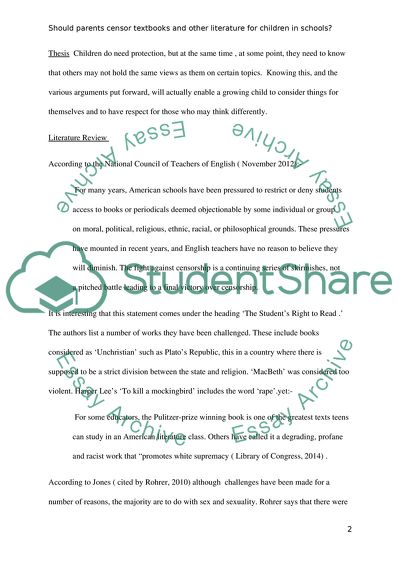Cite this document
(Should Parents Censor Textbooks and Other Literature for Children in Schools review Example | Topics and Well Written Essays - 4750 words, n.d.)
Should Parents Censor Textbooks and Other Literature for Children in Schools review Example | Topics and Well Written Essays - 4750 words. https://studentshare.org/education/1811912-should-parents-censor-textbooks-and-other-literature-for-children-in-schools
Should Parents Censor Textbooks and Other Literature for Children in Schools review Example | Topics and Well Written Essays - 4750 words. https://studentshare.org/education/1811912-should-parents-censor-textbooks-and-other-literature-for-children-in-schools
(Should Parents Censor Textbooks and Other Literature for Children in Schools Review Example | Topics and Well Written Essays - 4750 Words)
Should Parents Censor Textbooks and Other Literature for Children in Schools Review Example | Topics and Well Written Essays - 4750 Words. https://studentshare.org/education/1811912-should-parents-censor-textbooks-and-other-literature-for-children-in-schools.
Should Parents Censor Textbooks and Other Literature for Children in Schools Review Example | Topics and Well Written Essays - 4750 Words. https://studentshare.org/education/1811912-should-parents-censor-textbooks-and-other-literature-for-children-in-schools.
“Should Parents Censor Textbooks and Other Literature for Children in Schools Review Example | Topics and Well Written Essays - 4750 Words”. https://studentshare.org/education/1811912-should-parents-censor-textbooks-and-other-literature-for-children-in-schools.


